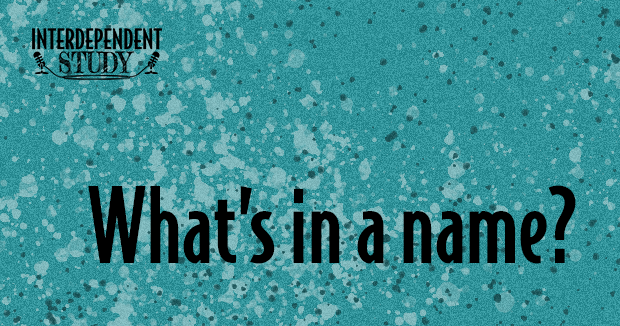Interdependent Study is a little unwieldy. It’s too long for a Twitter handle. It’s a lot of syllables. We even have trouble saying it while we work on the podcast. But once we said it out loud we knew that it had to be the name of our podcast.
In our early planning sessions, we were talking about what our direction for the podcast would be and what kind of purpose we thought we had. I suggested that a lot of people were looking for ways to stay engaged in social justice and collective liberation during the uprisings in the summer of 2020. There was a flurry of reading lists and thought-pieces on how people (usually white people) could learn more about racial justice. We wanted to know what happened to those folks who bought books and tried to learn more about systems of oppression. We wanted to know how people continued to have conversations with their friends and family and how they were bringing the movements for collective liberation into their own personal spheres.
It dawned on us that we were doing a version of this through our own conversations. We wondered what it would look like for us to use our backgrounds in higher education to structure our conversations in a way that could be recorded and shared. Almost like our own class. A version of an independent study course that a student might use to conduct specific research into a topic.
It dawned on me that this work is not independent but interdependent. We have to recognize the role that relationships play in collective liberation in a way that challenges the foundations of the values of rigid independence that is foundational to whiteness. We recognized that, in many ways, our friendship is built on this idea of interdependence. So our structured conversations are an Interdependent Study because we’re relying on one another to learn and grow and make this podcast a reality.
One of the other reasons that interdependent resonated for me personally was that it seemed to reflect the Buddhist concept of interbeing that I was introduced to through Thich Nhat Hanh’s writings. Interbeing reflects the notion that we are all connected to everything in the world and all other humans. We cannot exist solely independently because the people around us and the world around us guided us, helped us, and taught us. I believe that this is deeply connected to social justice work and the work of collective liberation. It’s even present in the name. We need to recognize collectively how we can be liberated from systems of oppression that crush our humanity. As Maya Angelou said, “no one of us can be free until everybody is free.”
Once we had the purpose and the name, it all felt inevitable that we had to make this podcast. We spent hours crafting ideas for episodes, learning details of recording and mixing audio, writing our scripts, and finding and reflecting on media (books, articles, documentaries, etc.) to include. We knew we had to find ways to bring collective liberation into our daily lives because we believe that’s the way we can start to create change.
We hope that you join us on this journey and add your own thoughts on the media that we are reflecting on in the podcast. Our plan for each episode is to talk about the media, discuss how we think it applies to our own lives, and then talk about what the homework of the piece is (what it’s calling on us to do moving forward). You can join in on the work and make this a truly interdependent study because we all have things to learn from one another.
Aaron

